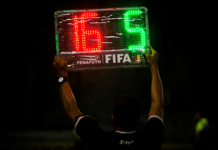
Successful soccer betting requires a balance between passion for the beautiful game and a clear, analytical approach. While cheering on your favourite team or a thrilling match can be exhilarating, letting emotions dictate your betting choices is a recipe for disaster. This is where cognitive biases come into play. These unconscious mental shortcuts, ingrained in our brains, can distort our thinking and lead us astray from making sound betting decisions.
The Highs and Lows of Biases
Imagine this scenario: You bet on greyhounds because they are on a hot streak, dismantling opponents with dominant performances. You’re feeling confident, perhaps even a little cocky. The overconfidence bias might fuel this euphoria. You see yourself placing a hefty bet on their next match, a surefire win.
However, overlooking injuries, a tough away fixture, and the opponent’s recent tactical shift due to the confirmation bias (focusing only on your team’s strengths) could lead to a disappointing loss and a lighter wallet. This example highlights how cognitive biases can cloud judgement and lead to costly mistakes. But fear not, fellow soccer enthusiasts! By understanding these biases and their influence on betting behavior, we can equip ourselves to make more informed and rational decisions.
Deep Dive into Common Biases
Let’s delve deeper into some of the most common cognitive biases that plague soccer bettors:
Confirmation Bias: As mentioned earlier, this bias makes us seek information confirming our beliefs while ignoring contradictory evidence. A team’s die-hard supporter might cherry-pick statistics showcasing their dominance, disregarding recent struggles or a key player’s suspension. This skewed perspective can lead to placing a biassed bet that overlooks potential risks.
Anchoring Bias: This bias occurs when we give undue weight to the first piece of information we encounter. In soccer betting, this often manifests in relying heavily on opening odds set by bookmakers. Anchoring can prevent us from “shopping around” for better odds offered by different bookmakers, potentially missing out on valuable opportunities.
Hindsight Bias: Have you ever exclaimed, “I knew they would lose!” after a surprising upset? That’s the hindsight bias at play. Looking back on the event, we believe the outcome was inevitable. This bias can be detrimental, leading to feelings of regret and hindering our ability to objectively assess future betting opportunities.
Gambler’s Fallacy: This is the mistaken belief that past events can influence the outcome of future independent events. A bettor who has lost several bets on a specific team might irrationally believe they are “due” for a win, ignoring the random nature of soccer. Chasing losses based on this fallacy can lead to a downward spiral.
Sunk Cost Fallacy: We are often reluctant to abandon something we have already invested in, even if it’s a losing proposition. This applies to soccer betting as well. A bettor with a large wager on a team might be more inclined to “throw good money after bad” by placing additional bets to recoup their losses, even if the initial analysis was flawed.
Availability Bias: This bias makes us overestimate the likelihood of events that are easily recalled or have a dramatic impact. A recent high-scoring match might lead a bettor to believe all upcoming matches will be goalfests, influencing their over/under bet selections. This underestimation of the inherent randomness in soccer can lead to poor betting decisions.
Beyond these common biases, others can also creep in. Though they are not outright biases, they are still dangerous.
The Bandwagon Effect – We tend to follow the crowd, which can be disastrous in soccer betting. Just because everyone backs a specific team to win doesn’t necessarily mean it’s a sound bet.
The Near Miss Effect – We might overvalue a team that was “unlucky” to lose a close match, leading to an overestimation of its future success.
Strategies to Sharpen Your Betting Mind
Now that we’ve identified the enemy (cognitive biases), let’s equip ourselves with the tools to combat them. Here are some strategies to become a more disciplined and informed soccer bettor:
- Embrace Objectivity: Actively seek out information that contradicts your initial beliefs. Consider different perspectives and analyse all available data before placing a bet. Don’t let your love for a team cloud your judgement.
- Research is King: Don’t rely solely on gut feelings or media hype. Conduct thorough research on teams, players, injuries, team form, and recent head-to-head matchups. Utilize statistics effectively, but remember, statistics don’t tell the whole story.
- Set Limits and Stick to Them: Establish a budget for your soccer betting and adhere to it religiously. Don’t chase losses with increasingly risky bets to “get even.” Responsible betting is crucial for long-term
- Take Breaks and Manage Emotions: Step away from betting if you feel emotional or frustrated. A clear head is essential for making sound decisions. If a string of losses has you feeling tilted, take a break, analyse your recent bets for any cognitive biases that might have influenced them, and come back with a fresh perspective.
- Focus on Value, Not Just Odds: Don’t be lured by high odds that might represent a risky bet. Look for situations where the potential payout outweighs the actual risk based on your analysis. Analyze the odds different bookmakers offer and identify value bets where the bookmaker might be underestimating a particular outcome.
- Learn from Mistakes: Analyze your past bets and identify any cognitive biases that might have influenced your decisions. Did you fall victim to confirmation bias by ignoring a team’s weaknesses? Perhaps the anchoring bias led you to stick with an unfavorable opening odd. Use these experiences as valuable lessons to improve your future betting strategy.
- Seek Expert Advice (With Caution): Consider following reputable tipsters or analysts who can offer valuable insights and diverse perspectives. However, remember to do your research and never blindly follow any tips. A good tipster should provide reasoning and analysis behind their predictions, not just pronouncements.
Final Words
Understanding cognitive biases and implementing the above mentioned strategies can create a more sustainable and successful soccer betting approach. Remember, discipline, research, and a healthy dose of skepticism will be your allies in navigating the soccer betting world. Don’t let emotions or biases dictate your decisions.
Embrace the thrill of the beautiful game, but approach your betting with a clear head and a well-defined strategy. With dedication and continuous learning, you can transform yourself from a casual bettor to a more informed and potentially profitable participant in soccer betting.




